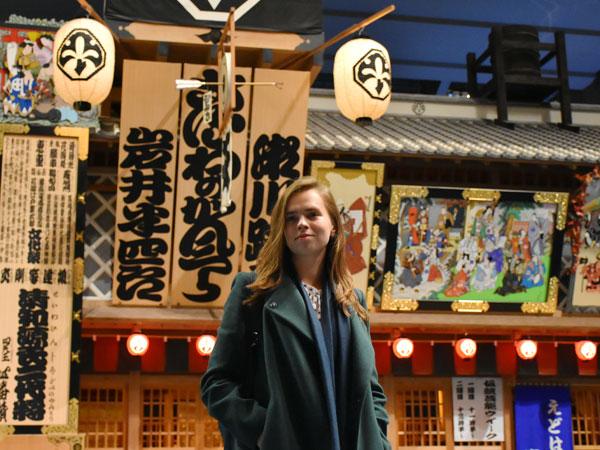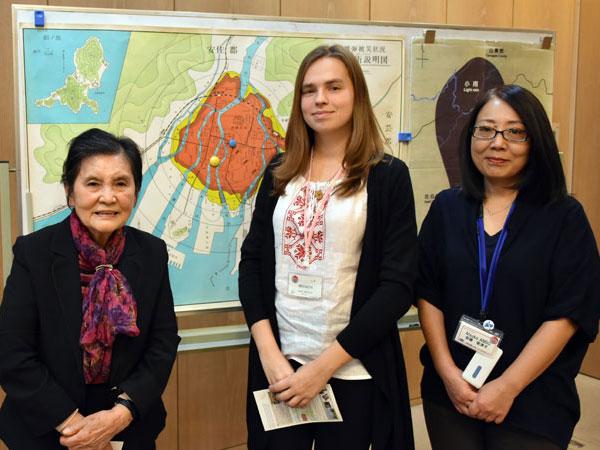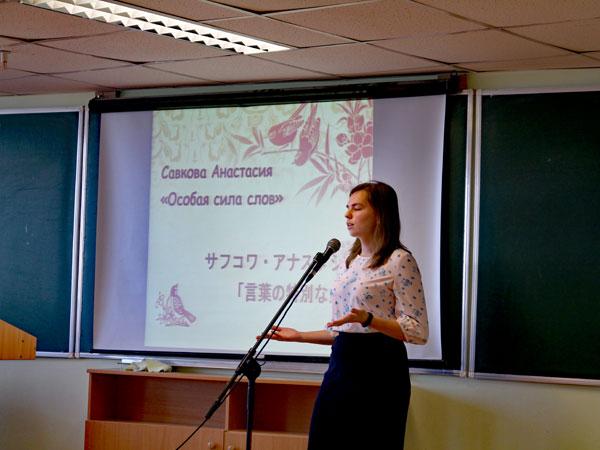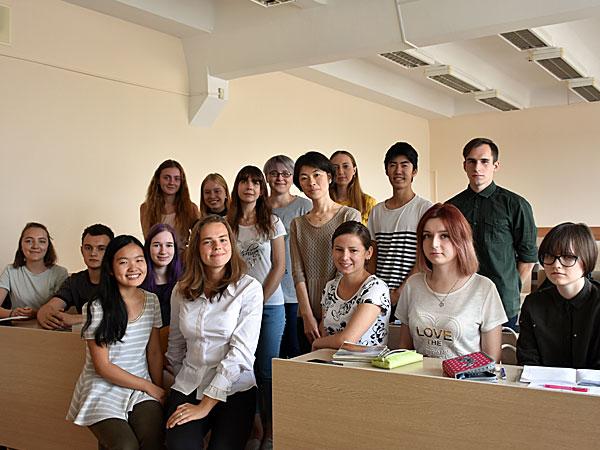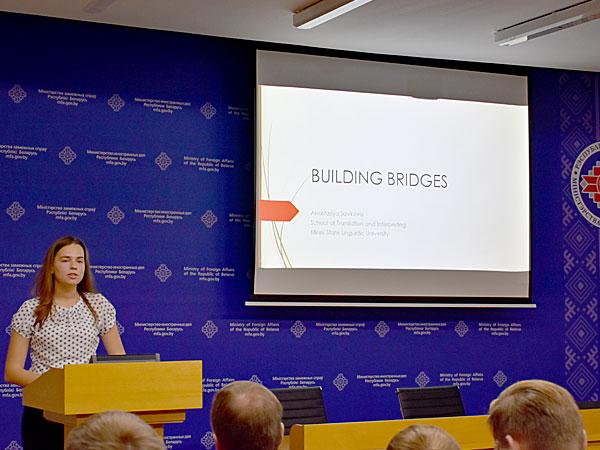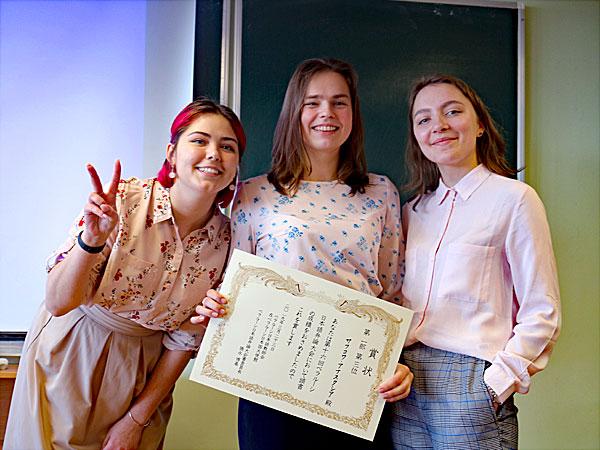Ms. Anastasiya Saukova, who visited Japan through the MIRAI program in 2018, is studying Japanese as a second foreign language at university. She won the third place in the Japanese Speech Contest hosted by the Embassy of Japan in Belarus in this March.
―Why did you participate in the MIRAI program 2018?
For almost 3 years, I have been studying the Japanese language at Minsk State Linguistic University of the Republic of Belarus, but I have never been to the Land of the Rising Sun. I major in interpreting and translation. In order to help establish communication between the Japanese and the Belarusians, a better understanding of Japan in all its aspects is essential, so I decided to broaden my horizons. Being a keen person and having a great interest in Japan, I have experience of participating in various events related to its culture and language such as movie weeks, culture festivals and workshops, volunteering and art contests. For many years I had been reading books about Japanese worldview, history and traditions. I was fascinated by movies about Japanese history. Then I encountered Japanese people who made me understand that both of our countries have something in common and that we may be close spiritually while being geographically far away from each other, so I wanted to check my assumptions and spread my findings. Moreover, I have always striven to travel and explore new things. I felt that studies were not enough for me, I strongly believed that I had many things to learn from the program, which shined like a gem waiting to be discovered. Moreover, various teachers at school and university told me a lot of good things about programs in Japan, so I just followed their advice, applied and was lucky to be admitted.
―What is the most impressive part of the MIRAI?
It was Japan itself – in all its shapes and forms, colours and shades, tastes and likings – that impressed me most of all. I enjoyed comparing the things I saw, heard and tasted with my previous expectations. I cherish every single minute I spent in Japan visiting the MOFA and prestigious universities, participating in cultural workshops, sharing the experience with the organisers and participants, walking along night city streets, eating tempura and drinking matcha tea. By diving into the atmosphere of the country and talking to its people, I enriched my personality and reconsidered my worldview.
The most touching part of the program was the meeting with the atomic bomb survivor Kiriaki Chieko. We had a chance to discuss serious issues regarding the impact of Hiroshima bombing and global cooperation. As a citizen of Belarus, which suffered from the catastrophic nuclear accident at the Chernobyl nuclear power plant and still bears the scars of such a huge disaster, I felt strongly compassionate about the stories she emotionally shared.
In a nutshell, the program was beneficial for my studies and future, so I express my gratitude to all the teachers, who helped me to improve English and Japanese, to the Embassy of Japan in Belarus for choosing me, to the JICE and MOFA of Japan for well-planned activities and unforgettable experience.
